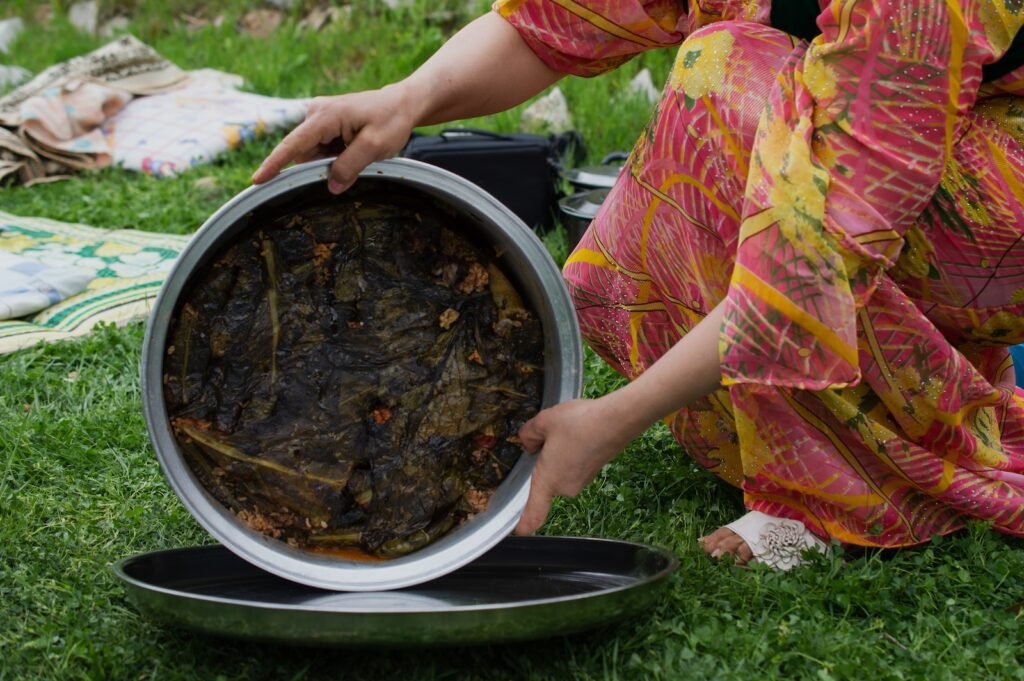Introduction to Traditional Turkish Food
When it comes to rich, diverse, and flavourful cuisines, traditional Turkish food stands out. This cuisine is a testament to the country’s vibrant history, culture, and geography. From the succulent kebabs to the sweet baklava, every dish tells a story of its own.
The Rich History of Traditional Turkish Food
The history of traditional Turkish food is as diverse as the country itself. It is a fusion of Central Asian, Middle Eastern, Eastern European, and Balkan cuisines. The Ottoman Empire, which spanned over 600 years, had a significant influence on Turkish cuisine, making it one of the most diverse and savory cuisines in the world.
The Diversity of Traditional Turkish Food
Breakfast
Turkish breakfast, or “kahvaltı,” is a feast in itself. It typically includes a variety of cheeses, olives, eggs, tomatoes, cucumbers, jam, honey, and kaymak. It can also include sucuk, a spicy Turkish sausage, and pastirma, a highly seasoned and air-dried cured beef. Bread, fresh and warm, is a staple at every Turkish meal, including breakfast.

Main Dishes
When it comes to main dishes, traditional Turkish food offers a wide range of flavors and textures. The famous “kebab” is a common dish, with many variations such as the shish kebab, doner kebab, and Adana kebab. Another popular dish is “manti,” a type of Turkish dumpling, often served with yogurt and spices.

Vegetarian Dishes
Traditional Turkish food is not just about meat. There are plenty of vegetarian dishes as well. “Dolma,” which means stuffed, is a dish made by stuffing vegetables like peppers, tomatoes, or eggplants with rice and spices. “Meze” are small dishes, often served at the start of meals, and can include a variety of vegetarian options.

Traditional Turkish Desserts
No discussion of traditional Turkish food would be complete without mentioning the desserts. Turkish desserts are renowned worldwide for their unique flavors and textures. “Baklava,” a sweet pastry made of layers of filo filled with chopped nuts and sweetened with syrup or honey, is one of the most famous Turkish desserts. “Lokum” or Turkish delight, is another popular sweet, often flavored with rosewater, lemon, or mastic.
Read about the most popular deserts in Turkey
Traditional Turkish Beverages
Turkish tea and coffee are integral parts of traditional Turkish food culture. Turkish tea, or “çay,” is consumed all day, often served in small, tulip-shaped glasses. Turkish coffee, on the other hand, is a strong, unfiltered coffee, served in small cups. “Ayran,” a cold yogurt beverage mixed with a little water and salt, is also a popular traditional drink.
Read about the national drink ‘Ayran’.
Conclusion: The Global Influence of Traditional Turkish Food
Traditional Turkish food, with its rich flavors, diverse ingredients, and unique preparation methods, has influenced cuisines around the world. It’s a cuisine that invites you to explore the rich history and culture of Turkey. Whether you’re savoring a hearty kebab, enjoying a sweet piece of baklava, or sipping on a strong Turkish coffee, you’re participating in a culinary tradition that spans centuries.

1 thoughts on “Traditional Turkish Food: A Culinary Journey”